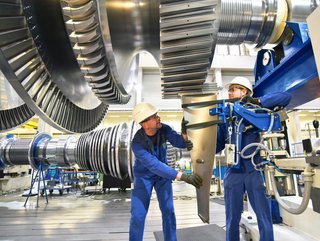The Impact of NCSA on Manufacturing & the Supply Chain

While consumers and stakeholders are demanding lower priced goods and quick delivery, they are also calling for manufacturers to ensure that the whole supply chain is free from forced labour and harmful environmental practices.
Regulations such as the German Supply Chain Due Diligence Act (LkSG) and National Supply Chain Assessment (NCSA) are implementing this, which is impacting manufacturers.
Manufacturing accountability under German regulations
The German Supply Chain Due Diligence Act (LkSG)
The LkSG states that companies which have their principal place of business in Germany and that employ 1,000 people, must disclose their due diligence measures, in order to prevent the risks of human rights violations and environmental damage creeping into their manufacturing processes.
National Supply Chain Assessment (NCSA)
The National Supply Chain Assessment assesses the capability and performance of a supply chain and can focus on specific levels within the system. A capability maturity model (CMM) and key performance indicators (KPI) are used to assess this. The results allow supply chain stakeholders to develop their strategic goals.
Both regulations are putting tremendous pressure on manufacturers to prove that their due diligence processes against both direct and indirect suppliers are thorough and robust.
Manufacturers must do their part to protect workers
Jag Lamba, CEO & Founder, Certa, spoke exclusively with Manufacturing Digital to discuss how the German Supply Chain Due Diligence Act and National Supply Chain Assessment could impact manufacturers.
“Both the LkSG and NCSA lay out regulations for supply chain due diligence to reduce the use of forced labour practices and limit the environmental impact of supply chain activity. These regulations require a detailed accounting of suppliers' human rights and environmental risks. In the case of the LkSG, that means sub-suppliers as well—the NCSA only requires indirect supplier due diligence in certain cases,” said Jag.
The LkSG has particularly detailed requirements and a broad reach, all companies with over 1,000 employees doing business in Germany must comply - including Volkswagen, BMW, Siemens and Porsche.
“The thorough and robust level of due diligence needed for suppliers and their suppliers under these regulations represents a significant burden for manufacturers - imagine needing to track raw material upstream with a comprehensive look at every company that touches it,” added Jag.
“Manufacturers are required to develop a plan and policy on combating environmental and human rights violations, follow through with risk detection and mitigation measures, and either publish or make available reports on their due diligence efforts. Many are relying on risk management systems that build traceability into their suppliers and sub-suppliers, offer automated monitoring for such risks, and create an audit trail for reporting.”
******
Make sure you check out the latest edition of Manufacturing Digital and also sign up to our global conference series - Procurement & Supply Chain 2024 & Sustainability LIVE 2024
******
Manufacturing Digital is a BizClik brand.
- SAP’s AI Joule set to Transform Supply Chain ManufacturingAI & Automation
- Top Ten: Diverse Companies in ManufacturingProduction & Operations
- How Smart Factories are Reshaping the Manufacturing SectorSmart Manufacturing
- Crowe UK: 2024 Manufacturing Outlook Report Explores GrowthProduction & Operations






